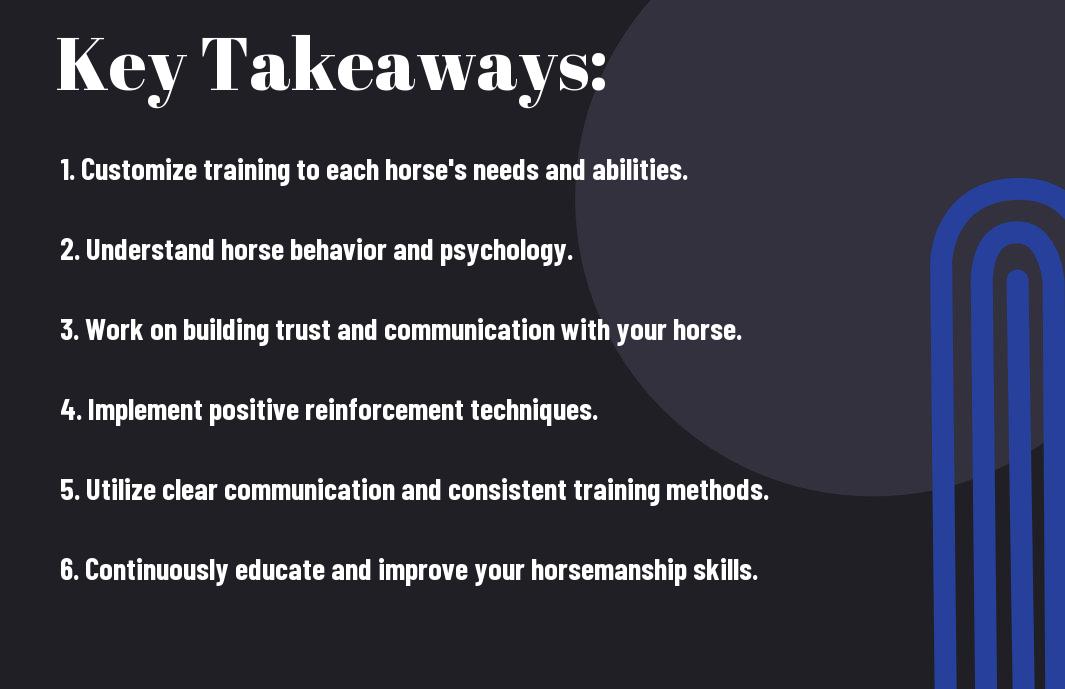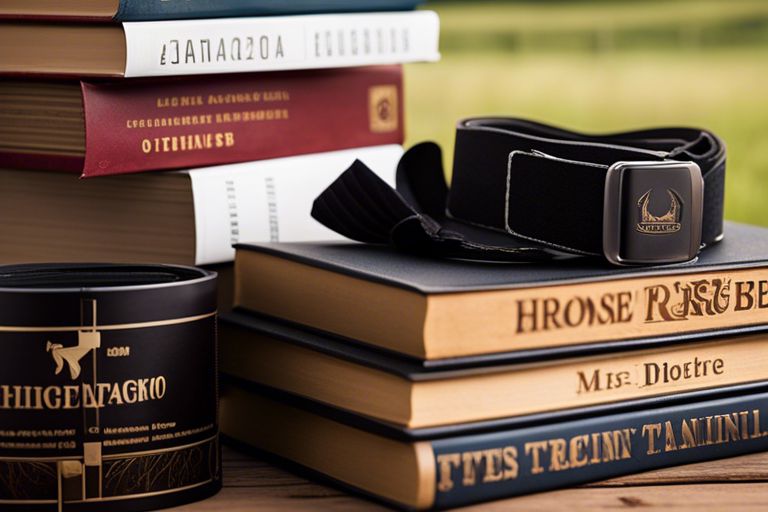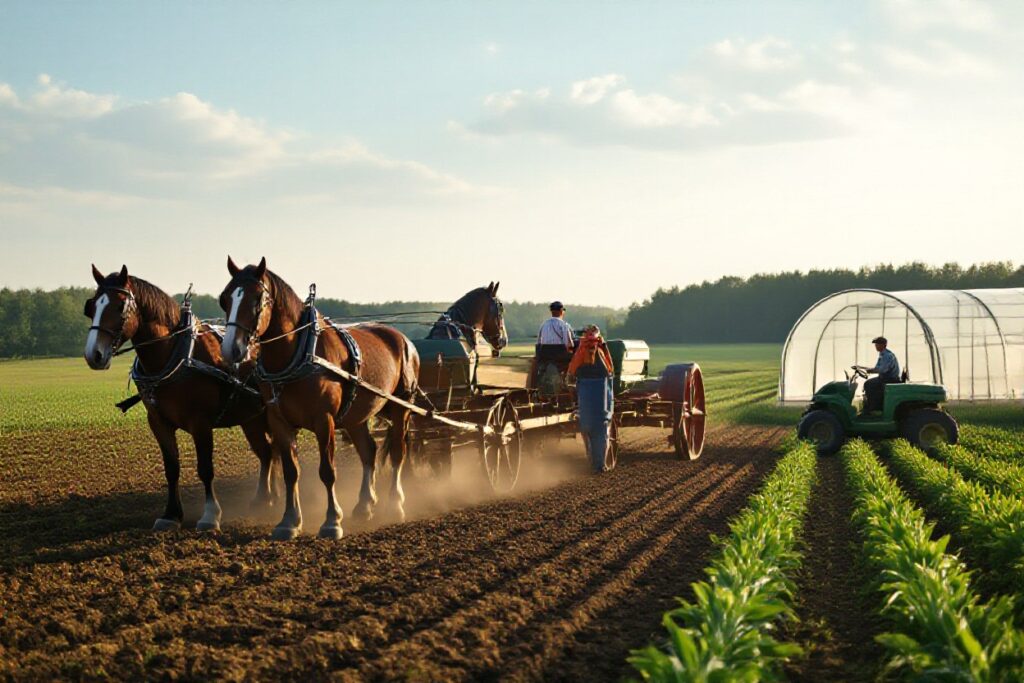There’s a wealth of knowledge waiting for you in the world of horse training books. Whether you’re a beginner looking to establish a solid foundation or an experienced rider seeking to refine your skills, the right book can be a valuable resource on your journey with these majestic animals. In this guide, we’ll explore some of the best horse training books available, tailored to every level of expertise.


Essential Reading for Beginners
Building Trust with Your Horse
With any new relationship, building trust is key. This is especially true when it comes to working with horses. A great resource for beginners is ‘Think Harmony with Horses’ by Ray Hunt and ‘The Man Who Listens to Horses’ by Monty Roberts. These books will help you understand the importance of trust and communication in your partnership with your horse.
Basic Horse Handling and Safety
To ensure a safe and enjoyable experience with your horse, it is crucial to have a good understanding of basic horse handling and safety practices. Books like ‘The Complete Horse Care Manual’ by Colin Vogel and ‘The Essential Hoof Book’ by Susan Kauffmann and Christina Cline are excellent guides for beginners. These books cover everything from grooming and tacking up to general safety precautions when working around horses.
The safety of both you and your horse should always be the top priority. Understanding how to properly handle and care for your horse will not only build a strong foundation for your relationship but also ensure a positive experience for both of you.
Intermediate Training Guides
It can be an exciting journey when you reach the intermediate level of horse training. You’ve established a solid foundation with your horse, and now it’s time to refine your skills and deepen your understanding of equine behavior. Here are some crucial training guides to help you advance further in your training journey.
Developing Communication Skills
Developing effective communication skills with your horse is key to achieving a harmonious partnership. These books focus on enhancing your ability to communicate clearly and effectively with your equine partner:
Advanced Horse Handling Techniques
When you’re ready to take your horse handling to the next level, these books research into advanced techniques that will help you further improve your horsemanship skills:
Topic Details Groundwork Exercises Introducing advanced groundwork exercises to build trust and respect. Longeing Techniques Exploring advanced longeing techniques for better communication and engagement.
Handling your horse with finesse and skill requires a deep understanding of equine behavior and psychology. These guides will equip you with the knowledge and techniques needed to handle your horse confidently:
Overcoming Common Training Challenges
One common aspect of horse training is facing challenges along the way. These books focus on strategies to help you overcome common training hurdles and continue progressing in your journey with your equine partner:
Expert Insights for Seasoned Riders
To refine your riding techniques further, consider delving into more advanced horse training books that provide expert insights for seasoned riders. These resources can offer valuable tips and strategies to help you fine-tune your skills and deepen your bond with your equine partner.
Refining Riding Techniques
An imperative aspect of advancing your riding abilities is by refining your techniques. This involves honing your communication with your horse, mastering advanced maneuvers, and improving your overall riding finesse. Expert authors in this realm can offer invaluable guidance on how to elevate your performance in the saddle.
- Techniques for Refining Riding:
Focus Areas Training Tips Improving your seat and balance Exercises to enhance stability and alignment Developing subtle aids and cues Methods for clear and precise communication Mastering complex riding patterns Strategies for executing advanced maneuvers
Advanced Horse Behavior and Psychology
Advanced insights into horse behavior and psychology can help you better understand your horse’s motivations, reactions, and learning processes. By studying these intricate aspects of equine psychology, you can tailor your training methods to suit your horse’s individual needs effectively.
- Advanced Horse Behavior and Psychology:
Understanding Application Equine body language cues Interpreting subtle signs in your horse’s behavior Motivational triggers Using positive reinforcement to encourage desired behaviors Building trust and rapport Methods for establishing a strong bond with your horse
Customizing Training Plans for Specific Breeds
One way to enhance your expertise as a seasoned rider is by customizing your training plans to suit specific horse breeds. Each breed has unique characteristics, strengths, and challenges, so tailoring your approach can lead to more successful outcomes in your training sessions.
To refine your training methods for specific breeds, consider the following factors:
* **Breed-specific traits:** Understanding the innate tendencies and abilities of different breeds.
* **Adapting training techniques:** Modifying your methods to align with the breed’s preferences and tendencies.
* **Utilizing breed strengths:** Leveraging the unique qualities of each breed to optimize training results.

Specialized Training Methods
Clicker Training for Positive Reinforcement
**Positive** reinforcement is a powerful tool in horse training, and clicker training provides an effective way to implement this technique. By associating a specific sound, like the click of a clicker, with a desired behavior, you can communicate with your horse in a clear and consistent manner. When your horse performs the desired behavior, you **strong**ly reinforce it with a treat, creating a positive connection between the behavior and the reward.
Natural Horsemanship Principles
**Training** your horse using natural horsemanship principles involves understanding and working with the horse’s natural instincts and behaviors. By **strong**ly focusing on communication, trust, and respect, you can build a deep and meaningful relationship with your horse. For instance, natural horsemanship techniques emphasize the importance of body language, voice cues, and understanding the horse’s social structure to establish a harmonious partnership.
Classical Dressage Techniques
To **excel** in classical dressage, you must **strong**ly focus on developing a partnership with your horse based on balance, flexibility, and precision. By refining your aids, position, and timing, you can communicate with your horse in a subtle and sophisticated manner. Classical dressage **strong**ly emphasizes the horse’s physical and mental well-being, creating a harmonious and beautiful picture of partnership and grace in motion.

Breed-Specific Training Guides
Your journey in horse training can be greatly enhanced by breed-specific training guides. These resources offer valuable insights into the unique characteristics and requirements of different breeds, helping you tailor your approach for the best results.
Training Arabian Horses
Horses of Arabian descent are known for their intelligence, endurance, and strong bond with their owners. When training Arabian horses, it’s important to establish a relationship built on trust and respect. These sensitive and spirited animals respond well to gentle handling and positive reinforcement techniques. Consistency and patience are key when working with Arabian horses, as they thrive in environments where boundaries are clear and communication is subtle.
Working with Quarter Horses
Arabian horses show incredible versatility and excel in various disciplines, from trail riding to dressage. They are quick learners and eager to please, making them well-suited for a range of activities. When working with Quarter Horses, focus on building a solid foundation in basic training before progressing to more advanced exercises. Their athletic build and natural agility make them ideal for events such as reining, cutting, and Western pleasure.
Understanding the breed-specific traits and tendencies of Quarter Horses will help you tailor your training approach accordingly. By recognizing their strengths and weaknesses, you can design a customized training program that brings out the best in these versatile and hardworking horses.
Training Warmbloods for Competition
Training Warmbloods for competition requires a combination of technical precision and strategic planning. These elegant and athletic horses are popular choices in the show jumping, dressage, and eventing circuits. When working with Warmbloods, focus on developing their natural talent for collection and extension, as well as their ability to perform complex movements with grace and power.
Plus, establishing a strong partnership with your Warmblood is important for success in the competitive arena. By fostering trust and communication, you can unlock their full potential and achieve remarkable results in the show ring.
Online Resources and Communities
Once again, the internet comes to the rescue with a wealth of resources and communities where you can learn and connect with other horse enthusiasts. Whether you are a beginner looking for basic training tips or an experienced rider seeking advanced techniques, these online platforms offer a plethora of information at your fingertips.
Top Horse Training Websites and Blogs
Blogs – Blogs can be a treasure trove of knowledge when it comes to horse training. Many experienced trainers and riders share their insights, tips, and tricks on their blogs, providing you with valuable information that you can apply to your own training sessions.
Joining Online Horse Training Forums
Blogs – Another great way to connect with like-minded individuals and expand your knowledge is by joining online horse training forums. These forums allow you to ask questions, share your experiences, and learn from others in the community.
With a plethora of forums dedicated to horse training, you can find one that suits your specific needs, whether you are interested in dressage, jumping, or natural horsemanship. By actively participating in these forums, you can gain valuable insights and build a network of support within the horse training community.
Following Expert Horse Trainers on Social Media
Online – Social media platforms like Instagram and Facebook have become excellent resources for following expert horse trainers. By following renowned trainers, you can stay updated on the latest training techniques, trends, and tips in the horse world.
With just a few clicks, you can access a goldmine of information shared by experts in the field. From training videos to live Q&A sessions, social media allows you to interact directly with top trainers and learn from their expertise.
Conclusion
Summing up, whether you are a beginner, intermediate, or advanced horse trainer, there are numerous books available to help you improve your skills and deepen your understanding of working with horses. From foundational concepts to advanced techniques, these books offer valuable insights and practical advice to assist you in becoming a better horse trainer. Take the time to explore different resources and find the ones that resonate with you and address your specific needs as a horse enthusiast.
Note, as with any skill, patience, dedication, and a willingness to learn are key to your success as a horse trainer. By incorporating the knowledge and wisdom found in these books into your training routine, you can develop a strong foundation and build upon your expertise over time. So, pick up a book, explore the world of horse training, and enjoy the journey of growing and improving alongside these magnificent animals.
Q: What are some recommended horse training books for beginners?
A: Some recommended horse training books for beginners are “The Complete Training of Horse and Rider” by Alois Podhajsky, “The Ultimate Horse Behavior and Training Book” by Linda Tellington-Jones, and “101 Ground Training Exercises for Every Horse & Handler” by Cherry Hill.
Q: What are some intermediate level horse training books?
A: Intermediate level horse training books include “The Principles of Riding” by German National Equestrian Federation, “Horse Speak: An Equine-Human Translation Guide” by Sharon Wilsie, and “Beyond Horse Massage: A Breakthrough Interactive Method for Alleviating Soreness, Strain, and Tension” by Jim Masterson.
Q: Can you recommend some advanced horse training books?
A: Advanced horse training books include “Dressage Training: Customized Schooling for Every Horse” by Britta Schöffmann, “The Athletic Development of the Dressage Horse: Manege Patterns” by Charles de Kunffy, and “Training Strategies for Dressage Riders” by Charles de Kunffy.
Q: Are there any specialized horse training books for specific disciplines?
A: Yes, there are specialized horse training books for specific disciplines such as “Cross-Train Your Horse: Simple Dressage for Every Horse, Every Sport” by Jane Savoie for dressage riders, “Becoming an Effective Rider: Develop a Winning Mindset for Dressage” by Cherry Hill for dressage enthusiasts, and “Reining Essentials: How to Excel in Western’s Hottest Sport” by Sandy Collier for reining competitors.
Q: How can I choose the best horse training book for my level?
A: To choose the best horse training book for your level, consider your experience, goals, and the discipline you’re interested in. Beginners may benefit from books with foundational training exercises, while advanced riders may prefer books focusing on specialized techniques. Read reviews, seek recommendations from trainers or peers, and choose a book that aligns with your training objectives.











